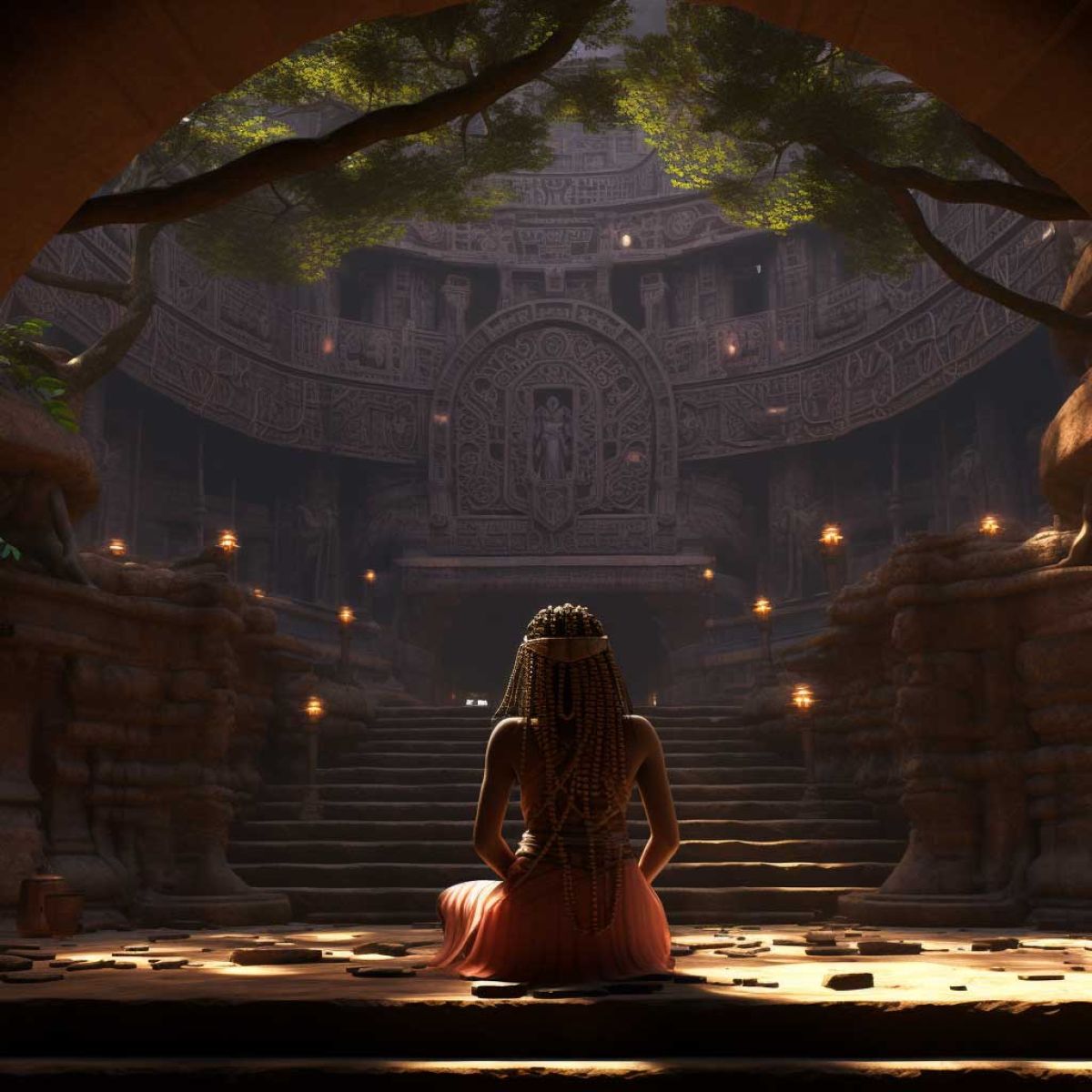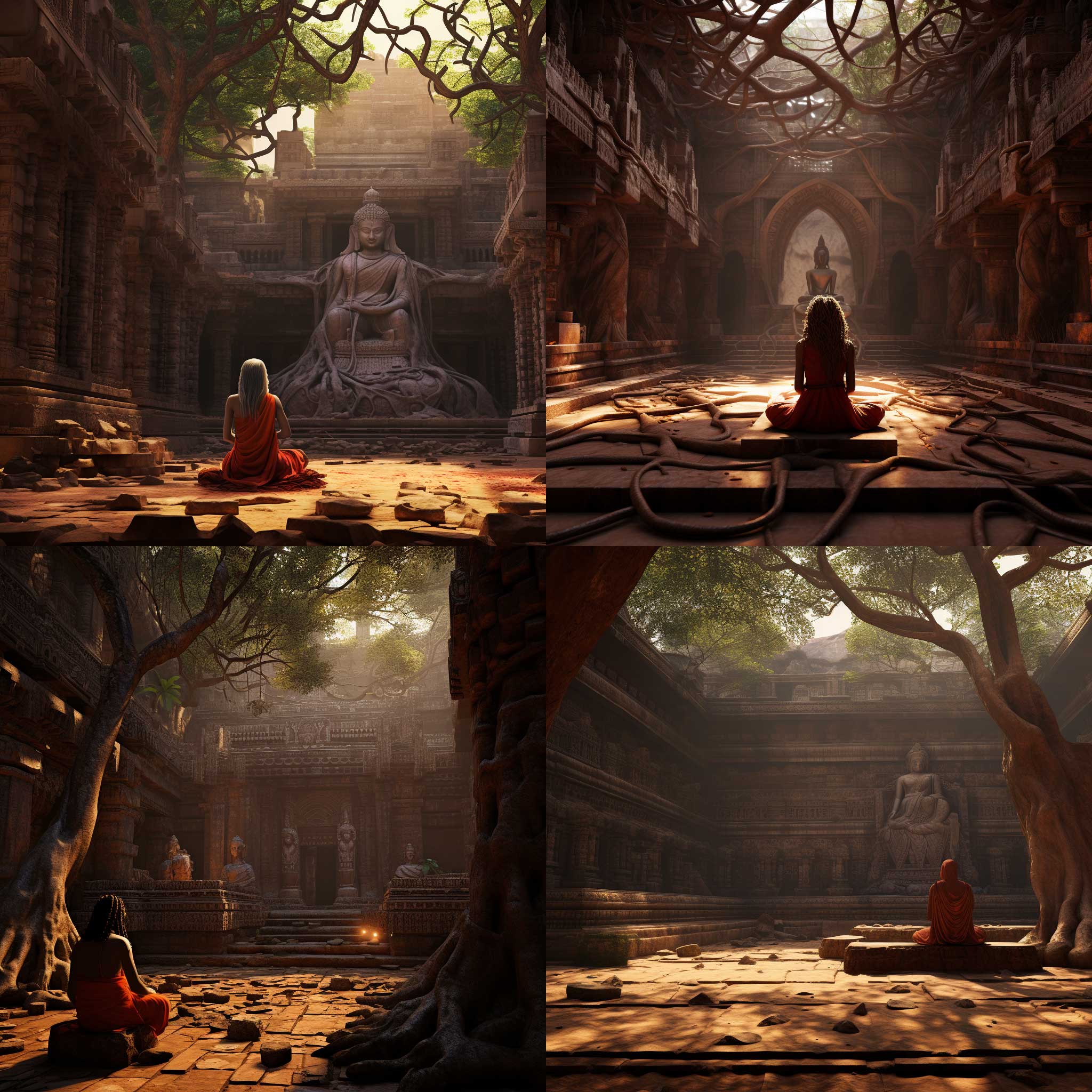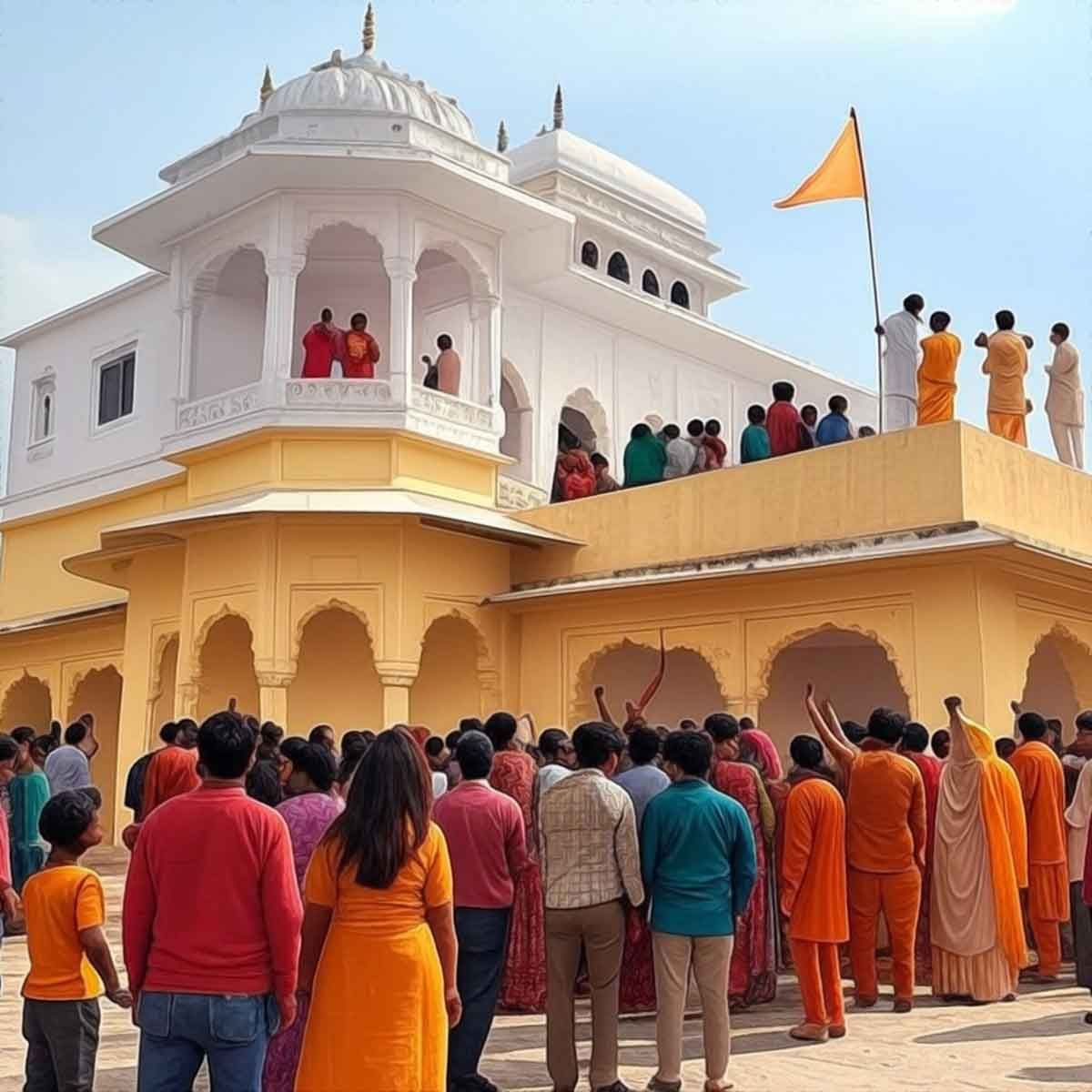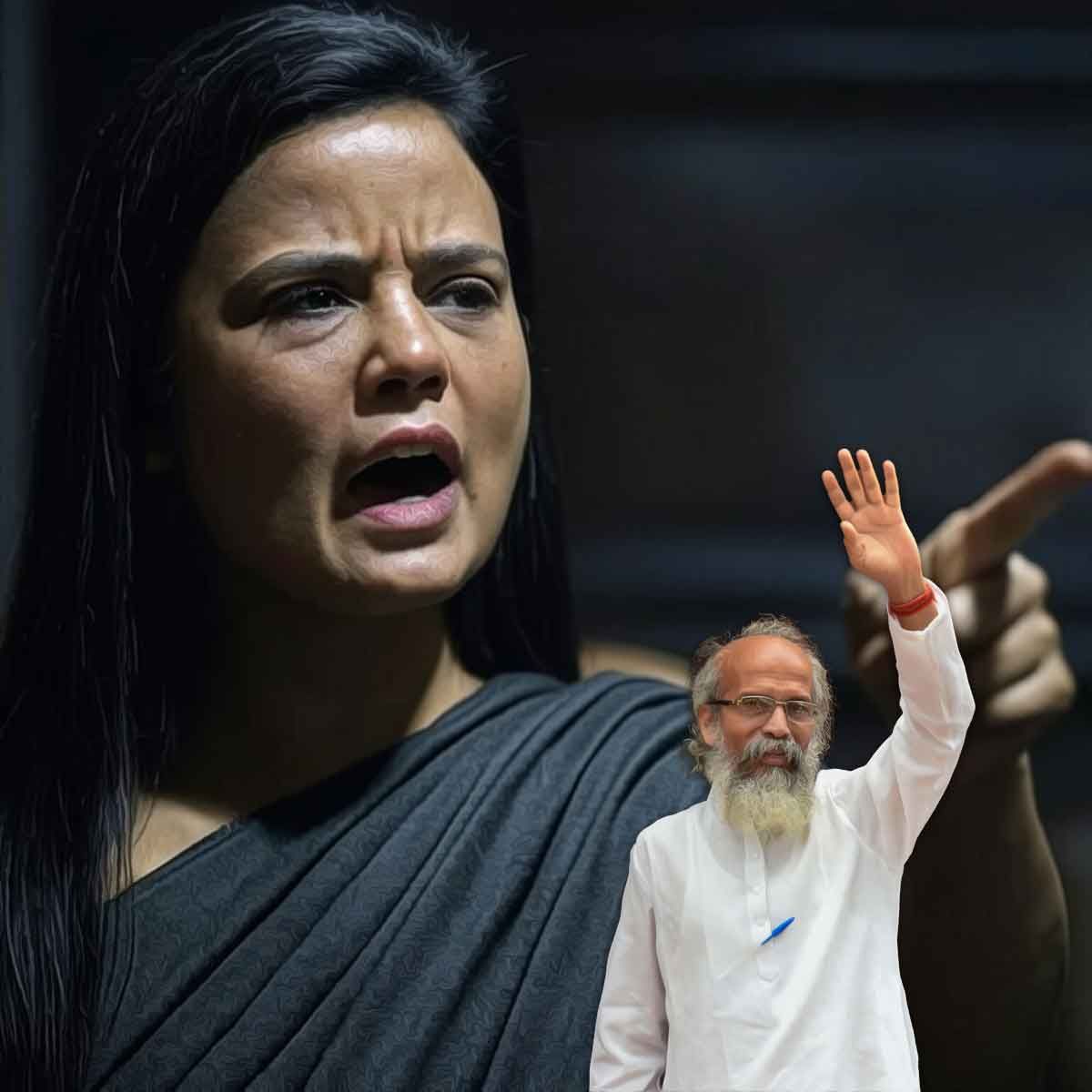More Coverage
Twitter Coverage
JOIN SATYAAGRAH SOCIAL MEDIA
"Temples are sacred, not tourist spots": Madras High Court declares TN temples off-limits for non-Hindus, Justice S. Srimathy ordered HR&CE for Installing boards, affirming Hindu rights to worship freely, setting a precedent for religious practice respect

In a significant ruling on Monday, the Madras High Court issued directives to the Tamil Nadu government and the State Hindu Religious and Charitable Endowments (HR&CE) Department, emphasizing the sanctity of the Palani temple, also known as the Arulmigu Dhandayuthapaniswamy Temple, along with its sub-temples located in Tamil Nadu. This decision underscores a pivotal stance on religious practice and the preservation of sacred spaces within the Hindu community.
|
Justice S Srimathy, from the Madurai bench, articulated a clear message that temples serve as more than mere locations for casual visits or recreational activities. They are places of worship, embodying deep religious significance for those who hold these beliefs. The Justice's assertion that "temples are not picnic spots" and the recognition that "Hindus too like other communities have the right to practice their religion without interference" brings to light the fundamental right to religious practice and the need for its respect and protection.
To enforce this directive, the Court has instructed the State government to take practical measures, including the installation of boards within the temple premises. These boards are to clearly state that "non-Hindus are not allowed" beyond the flagpole area, a symbolic boundary marking the sacred core of the temple space where only followers of the Hindu faith are permitted to proceed.
Furthermore, the Court has laid down a procedure for non-Hindus who wish to enter these religious spaces. They must provide a written undertaking, affirming their belief in the Hindu religion, its customs, and the deities worshiped within the temple. This requirement is designed to ensure that those entering the temple have a genuine respect and reverence for the faith and its practices.
This ruling by the Madras High Court is not merely about regulating access to a religious site. It is a declaration of the importance of maintaining the purity and integrity of places of worship. It acknowledges the right of religious communities to safeguard their traditions and rituals from disruption or dilution. By mandating that non-Hindus express their belief in the Hindu faith before entering the temple, the court is emphasizing the need for understanding and respecting religious sentiments.
|
The Court's ruling, addressing the access of non-Hindus to temples, lays down clear guidelines to ensure that the spiritual ethos of these places is respected and maintained.
The Court's instructions are as follows:
Installation of Boards: The authorities are mandated to place boards at strategic locations within the temple premises, including the entrance, near the Kodimaram (flagpole), and other visible areas. These boards are to clearly state that “Non-Hindus are not allowed inside temple after Kodimaram,” marking a physical boundary beyond which only those who follow the Hindu faith can proceed. This measure aims to inform and guide visitors, ensuring that the sanctity of the inner temple areas is preserved.
Restriction on Entry: The directives further stipulate that non-Hindus, who do not believe in the Hindu religion, shall not be permitted within the specified sacred areas of the temple. This rule reinforces the principle that the core areas of the temple are reserved for those who adhere to and respect the Hindu faith and its practices.
Undertaking for Entry: In cases where a non-Hindu expresses a desire to visit a particular deity within the temple, the Court has provided a compassionate provision. The individual must provide an undertaking, affirming their faith in the deity and their commitment to follow the customs, practices of the Hindu religion, and abide by the temple's traditions. Upon providing this undertaking, the non-Hindu visitor may be granted permission to visit the temple, ensuring that all visitors respect the religious practices and customs.
Record Keeping: The Court also mandates the maintenance of a register by the temple authorities. This register will document instances when non-Hindus are allowed entry based on their undertaking, ensuring a record of such occurrences for transparency and accountability.
Maintenance of Temple Premises: Finally, the authorities are instructed to uphold the agamas (scriptures), customs, and practices that define the temple's operations and rituals. This direction emphasizes the importance of preserving the traditional and religious practices that have been followed for generations.
These directives were issued in response to a petition filed by D Senthilkumar, organizer of the Palani Hill Temple Devotees Organisation, who advocated for the installation of prohibitory boards and signages to safeguard the religious purity of the temple.
|
In a detailed plea presented to the Madras High Court, D Senthilkumar highlighted a significant incident that underscored the need for clear guidelines regarding the entry of non-Hindus into the Palani temple premises. Senthilkumar recounted an event from last June, where a Muslim family, identified by the women wearing "Burquas," intended to use tickets purchased at the winch station for ascending to the Palani hilltop, not for worship, but to take photographs.
The family's argument that they were unaware of any restrictions, due to the lack of boards specifying such, highlights a critical oversight in communication that could potentially lead to misunderstandings and unintended disrespect towards the temple's sanctity.
Addressing the State government's concerns, the judge firmly rejected the apprehension that installing boards around the temple and hilltop might offend the religious sentiments of visitors. The court articulated a compelling argument, emphasizing that the failure to explicitly restrict non-Hindu visitors could inadvertently harm the religious sentiments of Hindu devotees and worshippers.
The judge underscored the right of Hindus to "freely profess and propagate their religion," highlighting the importance of maintaining a respectful environment within the temple premises that aligns with Hindu customs and practices. This principle serves as a foundation for the court's directives, ensuring that the religious integrity of the temple is not compromised.
|
The court's stance is clear: “If a non-Hindu is not having faith and decline to follow the customs and practices of the Hindu religion and decline to follow the temple customs, then the said non-Hindu cannot be allowed and hence there is no question of hurting his sentiments. On the other hand if the non-Hindu who declines to follow the customs and practices of the Hindu religion and decline to follow the temple customs is allowed inside the temple, it would affect the sentiments of the large number of Hindus who practices the faith as Hindu reverently," the Court opined.
The court's decision, aimed at preserving the sanctity of Hindu temples, underscores a vital aspect of religious freedom as enshrined in the Constitution of India.
The court highlighted a fundamental concern regarding the protection of Hindu devotees' sentiments. It pointed out that the respondents' apprehension towards potentially offending non-Hindus who do not share the Hindu faith inadvertently neglects the sentiments of the Hindu community. The judge, in clear terms, emphasized that the primary obligation of the Hindu Religion & Charitable Endowment Department is to safeguard the Hindu religion, its temples, customs, practices, and traditions. The court criticized the respondents for their "misplaced sympathy and misplaced worry on sentiments of Non-Hindus," suggesting that such concerns should not override the duty to protect Hindu religious practices and spaces.
In its ruling, the High Court also clarified the scope and intent of historical legislation related to temple entry. It noted that the Temple Entry Authorisation Act of 1947 was specifically designed to eliminate discrimination within the Hindu community regarding access to temples. However, this Act does not address the question of temple entry for non-Hindus, indicating a deliberate legislative choice not to extend its provisions beyond the Hindu community.
|
Justice Srimathy further emphasized that "temples were purposefully not included within the purview of Article 15." This highlighted the constitutional framework regarding religious spaces, suggesting that the founding fathers of the Indian Constitution made a conscious decision to exclude temples from the anti-discrimination protections of Article 15, which prohibits discrimination on grounds of religion, race, caste, sex, or place of birth, within the context of access to public places.
“But the examples cited by the petitioner are real concern for Hindus devotees. Even though the respondent deny the incident cited by the petitioner, there is a newspaper reporting wherein it is stated that group of persons belonging to other religion tried to enter the temple as tourists. It was also reported that in Arulmighu Brahadeeswarar Temple a group of persons belonging to other religion had treated the temple premises as picnic spot and had non vegetarian food inside the temple premises. Likewise recently on 11.01.2024 a newspaper had reported that a group of persons belonging to the other religion had entered the Arulmighu Meenakshi Sundareswarar Temple, Madurai with “their sacred book” near sanctum and sanctorum and was attempting to do their prayers before sanctum sanctorum. These incidents are absolutely interfering in the fundamental rights guaranteed to the Hindus under the constitution. The Hindus also have fundamental right to profess and practice their religion freely and propagate their religion without interfering in their way of practice. Therefore, the Hindus have right to maintain their temples,” the High Court said.
Senior Counsel N Anantha Padmanabhan and Advocate RM Arun Swaminathan appeared for Senthilkumar, the petitioner.
Additional Advocate General Veera Kathiravan, Government Advocate R Ragavendran, and Advocate R Baranidharan appeared for the respondents TN government and the State HR&CE Department.
Advocate Abhinav Parthasarathy appeared for the intervenor TS Ramesh.
Read Order
 |
 Support Us
Support Us
Satyagraha was born from the heart of our land, with an undying aim to unveil the true essence of Bharat. It seeks to illuminate the hidden tales of our valiant freedom fighters and the rich chronicles that haven't yet sung their complete melody in the mainstream.
While platforms like NDTV and 'The Wire' effortlessly garner funds under the banner of safeguarding democracy, we at Satyagraha walk a different path. Our strength and resonance come from you. In this journey to weave a stronger Bharat, every little contribution amplifies our voice. Let's come together, contribute as you can, and champion the true spirit of our nation.
 |  |  |
| ICICI Bank of Satyaagrah | Razorpay Bank of Satyaagrah | PayPal Bank of Satyaagrah - For International Payments |
If all above doesn't work, then try the LINK below:
Please share the article on other platforms
DISCLAIMER: The author is solely responsible for the views expressed in this article. The author carries the responsibility for citing and/or licensing of images utilized within the text. The website also frequently uses non-commercial images for representational purposes only in line with the article. We are not responsible for the authenticity of such images. If some images have a copyright issue, we request the person/entity to contact us at This email address is being protected from spambots. You need JavaScript enabled to view it. and we will take the necessary actions to resolve the issue.
Related Articles
- "Hatred is the coward's revenge for being intimidated": Descendants Of Vijayanagara Empire who reconstructed Chidambaram Natarajar Temple condemn TN Govt, “Give up politics of hatred against Deekshitars who are hereditary owners of the temple"
- Madras High Court: Do not take decision on melting Temple gold till Trustees are appointed
- DMK government in Tamil Nadu boasted that temple land worth Rs.2600 crore has been recovered and even launched a book giving details about it, temple lands amount to 5.25 lakh acres: Activist busts HRCE propaganda
- Why Hindus not claiming their temples back from the Government control: Is pro-Hindu govt will always be in power
- "Control your own destiny or someone else will": In a shocking incident, a Dikshitar of the revered Chidambaram Temple in Tamil Nadu assaulted by female police officer, HR&CE officials climb atop Kanagasabai medai while trying to take over mandir forcibly
- "लताड़": Madras HC slams Tamil Nadu police for FIR errors in Anna University assault case, orders ₹25 lakh compensation, women-led SIT probe, victim’s fee waiver, action on FIR leak, and police lapses, ensuring privacy, dignity, and justice for the victim
- DMK banned 500-year-old ritual of ‘Pattina Pravesam’ at Dharmapuram mutt in Tamil Nadu: Madhurai Adheenam claims threat to life after he accused MK Stalin-led govt of encroaching rights of Hindu temples
- HRCE officials replacing hereditary pujaris with Crash course non-brahmins under the pressure of Christians and Leftist NGOs in Tamil Nadu temple: Breaking the age-old sampradaya to hurt Hindu Dharma
- Malaysia and Singapore are allowing temple entry with Covid protocols but here in Tamil Nadu, India Devotees are denied entry to Palani temple on Thaipusam festival: Thaipusam is an important festival of the Tamil community
- Petition seeking restoration of 27 Hindu, Jain temples inside Quwwat Ul-Islam mosque at Qutub Minar complex rejected by Delhi court






















